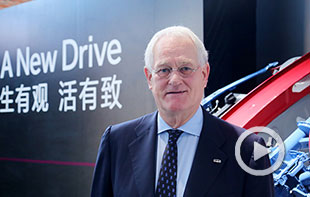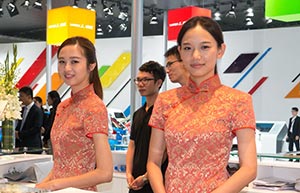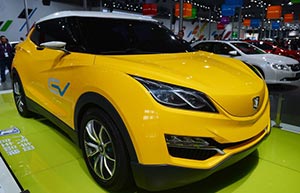Automakers look to drive sales overseas
Updated: 2013-09-03 08:40Chinese passenger vehicle exports peaked in 2008 at 314,000 before halving the following year. They have been climbing steadily since. In 2012, exports jumped to 616,738. The vast majority of these vehicles are going to emerging markets in the Middle East and Africa.
Total vehicle exports last year rose 30 percent to 1.05 million, according to the China Association of Automobile Manufacturers. Chinese automakers have set up 546 companies and institutes abroad with investments approved by the Ministry of Commerce.
The top exporters were Chery, Geely, Great Wall Motors, SAIC Motor and Lifan. In the first half of this year, Chinese automakers exported 486,800 vehicles, a drop of 0.6 percent from last year, according to CAAM.
Zhang Lin, Geely's vice-president, said in a statement that total demand outside China could reach about 20 million vehicles a year, about the same as in China. Geely is another company that is doing a good job both domestically and abroad, according to analysts.
But all this activity amounts to very little volume both in terms of the global auto market and compared with how many units automakers can actually produce.
Chinese manufacturers are operating well below capacity. While the trend among multinational carmakers is to develop manufacturing platforms that can produce multiple models and millions of vehicles, the platforms of Chinese automakers typically produce about 100,000. But because most of them want to do everything, they have multiple expensive platforms.
The end result is that upgrading is expensive. So is setting up manufacturing facilities overseas to produce more cars with low market shares. What's more, it does not make sense to invest hundreds of millions of dollars in a new factory when a pre-existing factory in China has plenty of capacity to pump out more cars.
So manufacturers produce more at home and then try to sell the vehicles through networks of dealers abroad.
"Unless you utilize your capacity, you are not going to make money,"said Ivo Naumann, managing director and head of the AlixPartners office in Shanghai.
In the end, this may be a distraction. Rather than following the tested path of dominating the home market before going abroad, Chinese automakers are trying to sell more units wherever they can.
"There are too many companies making too many things,"said Scott Laprise, an automotive analyst with CLSA, an investment firm.









